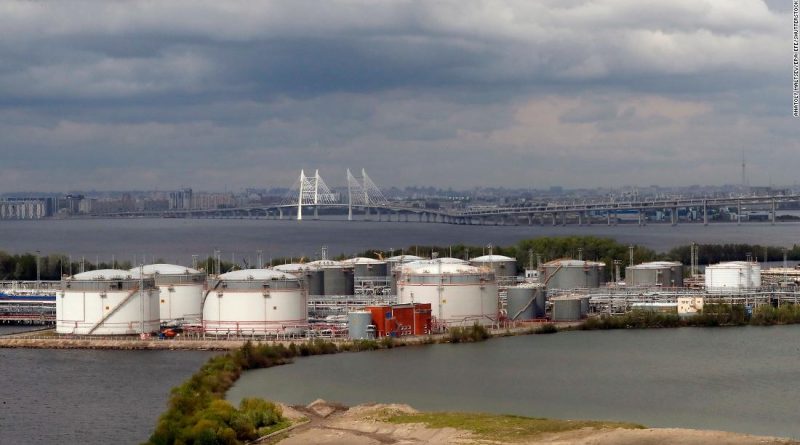Europe is making it much harder for Russia to ship oil anywhere
“Targeting the insurance side of things is the best shot at halting Russian crude flows instead of just redirecting them,” said Matt Smith, lead oil analyst at Kpler, a market intelligence firm.
The European Union has announced that EU companies will be blocked from “insuring and financing the transport” of Russian oil to third-party countries after a transitional period of six months.
The United Kingdom is expected to join the EU effort. That would further tighten the vise, since Lloyd’s of London has for centuries been at the center of the maritime insurance market.
So far, Russia has been able to cushion the blow from a drop-off in exports to Europe by attracting other customers with steep discounts. But if ships can’t get the insurance they need for delivery runs, that will become much tougher in the near term.
“The restrictions on insurance for Russian ships is hugely important and a primary reason we assume not all Russian barrels can simply be redirected away from Europe to elsewhere, in particular China and India,” said Shin Kim, head of supply and production analysis at S&P Global Commodity Insights. “The ban will add political and economic complications to moving Russian oil.”
The China and India factor
The EU ban on Russian crude shipped by sea is being phased in. But European customers have already pulled back, wanting to avoid difficult logistics and reputational damage.
But an uptick in exports to Asia helped make up for a large chunk of those losses. China and India — taking advantage of huge price discounts — imported about 938,700 barrels per day in May, per Kpler data. In January, imports from those two countries totaled just 170,800 barrels per day.
“Fast forward three months after the start of the war, and Russian crude exports are still continuing apace,” Smith said. “They’re just being rerouted and finding new homes.”
The EU ban on insuring the transport of Russian crude is aimed squarely at this problem. If the United Kingdom cooperates, it would make it much harder for India to pick up the slack. The same goes for China, where demand for fuel is expected to increase as coronavirus restrictions in major cities are eased.
The insurance market also includes a network of reinsurers who help pool risk. Many of these firms are based in Europe.
“Initially, at least, I think this is going to have a huge impact on the market,” said Leigh Hansson, a partner in the global regulatory enforcement group at the law firm Reed Smith.
Shutting Russia out of other markets would have the desired effect of tightening the screw on Moscow, but it could further boost global energy prices just as Europe and the United States try to tame soaring inflation.
Insurance as a weapon
Refiners and other importers aren’t the only ones who care that vessels transporting crude have acceptable insurance.
Financial institutions also remain wary of running afoul of sanctions, which can lead to huge penalties from regulators.
“It’s not just a transaction that involves a refiner and a Russian producer,” said Richard Bronze, head of geopolitics at Energy Aspects, a research consultancy based in London. “There’s all these other parties who have to be involved.”
“This problem is solvable,” Dmitry Medvedev, deputy chair of Russia’s Security Council, said on his official Telegram channel. “The question of insurance of deliveries can be closed through state guarantees in the framework of international agreements with third countries. Russia has always been a responsible and reliable partner, and will stay that way going forward.”
That means Russian shipments likely won’t be cut off entirely.
“It’s disruptive, but it’s not going to wipe out all Russian exports,” Bronze said.
But not everyone will view this as an adequate solution — especially given questions about whether Russia would be able to pay out claims should it need to while it’s subject to harsh sanctions.
“There’s going to be a lot more doubt,” Bronze said. “I think it narrows the pool of countries that are willing to buy.”
— Clare Sebastian contributed reporting.




